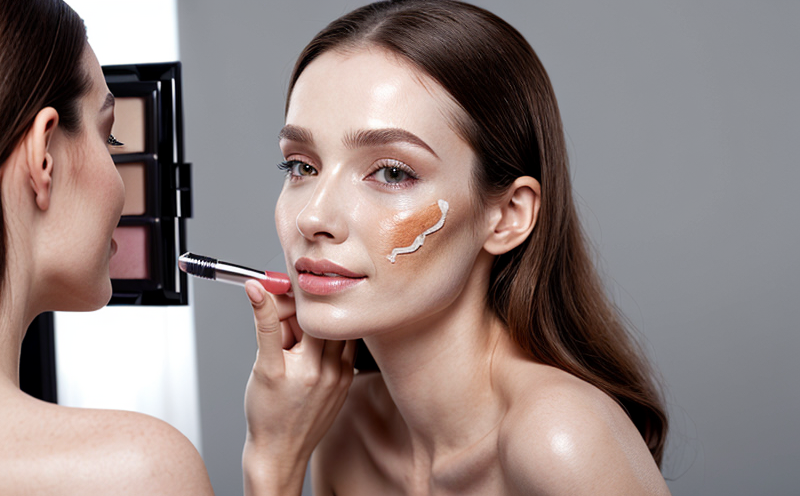Dermatological Efficacy Testing of After-Sun Products
The dermatological efficacy testing of after-sun products is a critical process that ensures the safety and effectiveness of these formulations. After-sun treatments are designed to soothe, hydrate, and protect skin following sun exposure or other environmental stressors. This service involves rigorous evaluation to ensure they meet regulatory standards for safety and efficacy.
Our testing begins with thorough ingredient analysis to identify potential allergens or irritants that could harm the skin. Once identified, we conduct patch tests on volunteers to assess the likelihood of allergic reactions. These tests follow international guidelines such as ISO 10993-4 for in vitro cytotoxicity and ISO 18765 for contact dermatitis.
Hydration levels are a key factor in after-sun products, so we employ advanced techniques like corneometry to measure skin hydration before and after application. This helps determine the product’s effectiveness in restoring moisture balance post-exposure. Additionally, we use spectrophotometric methods to assess the visible improvement of sun-damaged skin.
For clinical efficacy testing, we conduct randomized controlled trials (RCTs) to evaluate the product's performance under real-world conditions. Participants are monitored for a range of parameters including redness, irritation, and overall comfort over several days post-treatment. Compliance officers can rely on these results to ensure they meet regulatory requirements such as those set by the European Union Cosmetics Regulation (EU) No 1223/2009.
Our service also includes microbiological testing to ensure that after-sun products are free from harmful microorganisms, including bacteria and fungi. This is crucial given the high risk of skin infections due to compromised barriers post-sun exposure. The presence of preservatives in these formulations must be balanced with their potential irritative effects on the skin.
We provide detailed reports summarizing all test results along with recommendations for improvements if necessary. These reports are essential tools for quality managers and R&D engineers to refine formulas based on real-world performance data.
- ISO 10993-4: In vitro cytotoxicity testing
- ISO 18765: Contact dermatitis testing
- Corneometry measurement of skin hydration
- Spectrophotometric analysis for visible improvement assessment
- Randomized controlled trials (RCTs) for clinical efficacy evaluation
- Microbiological testing to ensure product safety
The results from these tests are not just beneficial for the after-sun products themselves; they also contribute to broader research in dermatology, helping to advance our understanding of how skin responds to various environmental stressors.
Applied Standards
Our testing adheres strictly to the European Union Cosmetics Regulation (EU) No 1223/2009, which mandates rigorous safety assessments for all cosmetic products. Compliance with these regulations ensures that after-sun products are safe and effective when used as directed.
In addition to EU standards, we also follow international guidelines such as ISO 18765 for contact dermatitis testing and EN 14209-3:2009 concerning the assessment of skin irritation. These standards provide a robust framework that guarantees the accuracy and reliability of our test results.
For microbiological safety, we reference IEC 62788 which sets out requirements for the safety of medical electrical equipment in environments where it could come into contact with liquid body substances. This ensures that after-sun products do not pose a risk to users' health and well-being.
Eurolab Advantages
At Eurolab, we pride ourselves on offering comprehensive testing solutions tailored specifically for the cosmetic industry. Our team of experts has extensive experience in dermatological and clinical efficacy testing, ensuring that every test conducted meets the highest standards.
We utilize state-of-the-art equipment such as the Corneometer CM825 to measure skin hydration accurately and consistently. This tool is particularly useful in evaluating how well after-sun products restore moisture levels post-exposure. Our laboratory uses advanced spectrophotometers for precise analysis of visible improvements, providing reliable data on product effectiveness.
Our facilities are equipped with ISO 17025 accredited labs, ensuring that all testing processes comply with international best practices. This accreditation guarantees the accuracy and reliability of our results, making them trusted by quality managers, compliance officers, R&D engineers, and procurement teams alike.
We offer flexible scheduling options to accommodate clients' busy schedules while maintaining strict adherence to deadlines. Our commitment to excellence ensures that every test is conducted efficiently without compromising on quality or thoroughness.
Frequently Asked Questions
Competitive Advantage and Market Impact
Our comprehensive testing services offer significant competitive advantages in the cosmetic market. By ensuring that after-sun products meet or exceed regulatory standards, we help companies stay ahead of competitors who may not adhere to these rigorous guidelines.
- Enhanced product safety leading to increased consumer trust and loyalty
- Proven efficacy through clinical trials, enhancing brand reputation
- Compliance with EU regulations, opening doors for international sales
- Data-driven insights guiding R&D efforts towards innovation
- Accurate microbiological testing reducing risk of product recalls
The accurate and reliable results from our tests have a direct positive impact on market positioning. Brands that invest in thorough dermatological efficacy testing gain an edge by offering safer, more effective products which can command higher prices in competitive markets.
Moreover, the detailed reports we provide serve as valuable resources for continuous improvement of product formulations. This proactive approach not only enhances current offerings but also sets a foundation for future innovations within the cosmetic industry.





